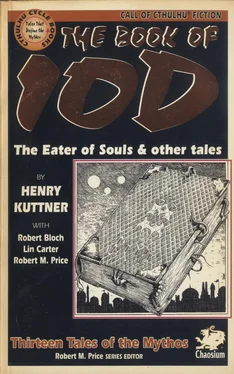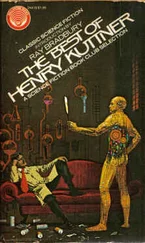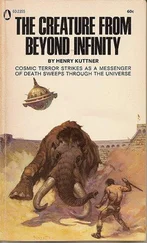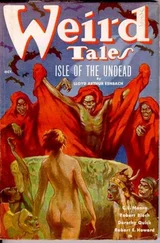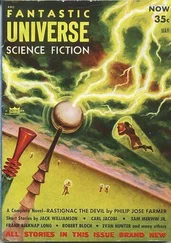Henry Kuttner - The Book of Iod
Здесь есть возможность читать онлайн «Henry Kuttner - The Book of Iod» весь текст электронной книги совершенно бесплатно (целиком полную версию без сокращений). В некоторых случаях можно слушать аудио, скачать через торрент в формате fb2 и присутствует краткое содержание. Год выпуска: 1995, ISBN: 1995, Издательство: Chaosium, Жанр: Ужасы и Мистика, на английском языке. Описание произведения, (предисловие) а так же отзывы посетителей доступны на портале библиотеки ЛибКат.
- Название:The Book of Iod
- Автор:
- Издательство:Chaosium
- Жанр:
- Год:1995
- ISBN:9781568820453
- Рейтинг книги:5 / 5. Голосов: 1
-
Избранное:Добавить в избранное
- Отзывы:
-
Ваша оценка:
- 100
- 1
- 2
- 3
- 4
- 5
The Book of Iod: краткое содержание, описание и аннотация
Предлагаем к чтению аннотацию, описание, краткое содержание или предисловие (зависит от того, что написал сам автор книги «The Book of Iod»). Если вы не нашли необходимую информацию о книге — напишите в комментариях, мы постараемся отыскать её.
The Book of Iod — читать онлайн бесплатно полную книгу (весь текст) целиком
Ниже представлен текст книги, разбитый по страницам. Система сохранения места последней прочитанной страницы, позволяет с удобством читать онлайн бесплатно книгу «The Book of Iod», без необходимости каждый раз заново искать на чём Вы остановились. Поставьте закладку, и сможете в любой момент перейти на страницу, на которой закончили чтение.
Интервал:
Закладка:
Then the agony in his head lessened and was gone. There was a brief, shrill whistling that seemed to recede reluctantly as though into vast distances, and Doyle was left alone in the midst of a brooding, oppressive silence.
Save for the motionless figure in the car, the road was empty.
Alvin Doyle made a move to lift his arm, and found that he could not stir. With chill horror creeping over him he tried to shriek, to call for help, but no sound came from his frozen lips.
Suddenly he thought of the words of Benson. “…Iod extracts the vital forces of being, leaving only—consciousness. The brain lives, but the body dies… life in death.”
Doyle slipped into temporary oblivion. And when he awakened, he found the car surrounded by a dozen onlookers. A man in a khaki uniform was doing something with a mirror. In answer to a question Doyle had not heard, the man shook his head somberly.
“No, he’s quite dead, all right. Look at that.” He exhibited the mirror. “See?”
Doyle tried to shriek, to tell them that he lived. But his lips and tongue were paralyzed. He could make no sound. There was no sensation in his body; he was not conscious of its existence. Slowly the faces around him receded into white blurs, and the thunder of madness roared relentlessly in his ears.
It was strangely rhythmic thunder. A series of jarring shocks— the hollow thud of clods falling on a coffin—the utter panic of an existence that was neither life nor death.
Beneath the Tombstone
by Robert M. Price
To eternal life are none but fools disposed.
The wise thirst instead for oblivion’s repose.
The slumber of the tomb shall be thy rest,
A shield for thee from the unwelcome guest.
If thy clay recline beneath the Elder Sigil,
Against the shambling foe it shall keep vigil.
This story began as a friendly parody of August Derleth's Lovecraftian fiction in Crypt of Cthulhu #6. In an expanded and rewritten form it became something more of a tribute to Derleth and appeared in the pages of Footsteps magazine. But it is equally a tribute to Henry Kuttner and employs some of his characteristic themes, such as the waiting occupant of a grave and the use of the Book of Iod. The controlling conception of that book hen is the Kabbalistic one, implied in Kuttner's use of terms like Tikkoun and kadesh. The Gnostic element derives from the similarity between “Iod” and “Iao”, a Hellenizedabbreviation of“Yahweh” often used in the syncrefistic magic of the Hellenistic age (see Hans Dieter Betz (ed.), The Greek Magical Papyri in Translation andJohn Gager, ed., Curse Tablets and Binding Spells from the Ancient World); cf. “lo Sabbaoth, Ialdabaoth” in Gnostic texts.
“Beneath the Tombstone” contains the first reference to the shunned hamlet ofTophet, Pennsylvania, later used in a story by Lin Carter. The name is one of the designations, used by the prophet Jeremiah, for the cursed Valley of Hinnom where Moloch-worshipers once sacrificed infants outside Jerusalem. It later became a garbage dump where bodies wen thrown which could not be given decent burial in sacredground. Tophet is the historical prototype for that place “where the worm dieth not and the fin is never quenched”
First publication: Footsteps TV, 1984.
I.
I cannot say precisely why my eccentric Uncle Absalom had chosen me to inherit what remained of his worldly estate. God knows there were other surviving kin who had been closer to him than I, or at least I supposed there must have been. At any rate I had had little contact with him that I could remember since the family reunions of my childhood. What interest he could have taken in me then I cannot readily imagine.
Nonetheless on the 5th of March I packed my belongings into my car (it was easy enough to do, there being so few of them), and set off for the old mansion amid the low hills of Lancaster County, Pennsylvania. Small towns had never been particularly to my liking, but times being what they were, I was not about to turn down a free house, no matter what shape it was in, nor how isolated it was.
The hamlet to which my uncle had retired was a bit difficult to find. Road maps did not list it, and even locals whom I stopped to ask did not seem to have heard of Tophet. Perhaps I was mispronouncing it. All I knew was that the name had a vaguely biblical ring to it, but then so did most of the towns and villages in this region. That fact became obvious as I drove aimlessly through several of them. If I had to be lost, Lancaster County was at least a picturesque place in which to lose oneself. But towards evening I did find Tophet with directions provided by the proprietor of a small general-store-and-gas-pump down the road.
It was tiny, a backwater really. Once there, it was not difficult to find Uncle Absalom’s homestead. It was actually situated some miles away from the rest of the town, so that I wondered if it were technically included in the municipal jurisdiction. The old mansion rose in all its decadent grandeur amid the wild countryside. It was in fairly good repair, though gloomy in general aspect. The effect was rounded out by the series of chalked and painted hex signs high up near the eaves. Of course, I had seen similar symbols and plaques all day, and appreciated them as true examples of folk art. But I had always wondered how seriously the Amish and Mennonite farmers of the region took their hex icons. These pious folk were not ones for frivolous decorations, but surely their religion was equally unfriendly to superstitious belief in hexes and curses.
The key with which I had been supplied fit, despite the rusty disrepair of the lock, with a ready click, and I roamed the house trying to make its acquaintance. And quite a bit of roaming would be necessary even to cover the floor plan once. Passing from the front hall through the drawing room and study, I was quite impressed with the decor. There was oaken paneling in abundance which should have lent the interior a certain deep warmth, but somehow did not. Perhaps this was due to the neglect the elaborate woodwork had apparently suffered. In the brief time since my uncle’s death, the finish could not have grown so dull unless it had been ignored long before. Uncle Absalom mustn’t have shared the previous generation’s fastidiousness. Perhaps he was, like many an eccentric recluse, altogether oblivious of things mundane, his mind being diverted to other channels. The corroded lock on the front door had already suggested his lack of care for minor repairs. In fact, the only housework with which he might have troubled himself was keeping the rug clean, and this I only noticed because the puzzling geometrical patterns in the rug weave caught my eye. They would not have been so distinct if old Absalom had not groomed the rug periodically. Something in that odd weave seemed familiar, perhaps a coincidental resemblance to the hex signs on the exterior of the house. Well, no matter.
In the study my eyes wandered from the dull finish of the paneling to the well stocked shelves, and finally to the framed portrait above the mantel. Of course it was Uncle Absalom himself. As I have said, I had not seen the man since my youth, yet the sight of the painting instantly filled in the holes the years had worn in my memory. That was he, all right. The skill of the painter had captured even the hint of bored irritation the old man must have evidenced as he sat for the portrait, a chore forced on him, no doubt, by some pestering relative. How must all of his relatives have annoyed this man who sought only silence, for him to have bypassed them, leaving his estate to me!
Читать дальшеИнтервал:
Закладка:
Похожие книги на «The Book of Iod»
Представляем Вашему вниманию похожие книги на «The Book of Iod» списком для выбора. Мы отобрали схожую по названию и смыслу литературу в надежде предоставить читателям больше вариантов отыскать новые, интересные, ещё непрочитанные произведения.
Обсуждение, отзывы о книге «The Book of Iod» и просто собственные мнения читателей. Оставьте ваши комментарии, напишите, что Вы думаете о произведении, его смысле или главных героях. Укажите что конкретно понравилось, а что нет, и почему Вы так считаете.
